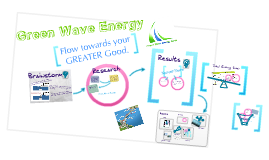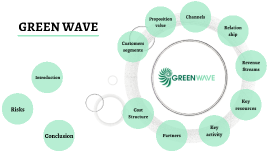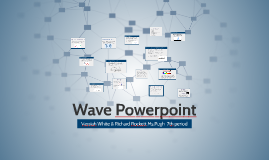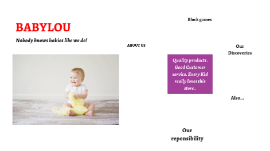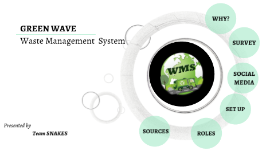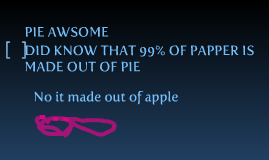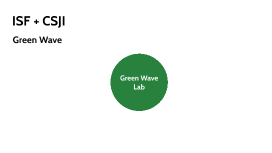Green Wave
Transcript: ISF + CSJI Green Wave Green Wave Lab positioning Green Wave Lab ISF's Green Wave project aims to build a collaboration between UTS and its neighbouring precinct to transition to net zero emissions. The transition to net Zero Emissions will require socio-technical innovation from communities, the implementation of carbon reducing technologies and systems, accompanied by a change of community capacity, behaviours and attitudes. Lower socio-economic communities are often left behind in climate discussions and initiatives. Many sustainable initiatives have become commoditized, expensive and beyond the grasp of lower-socio economic communities. Yet it is these communities that are the most vulnerable to the impacts of a changing climate. Though its partnership with CSJI Green Wave aims to explore the viability of local communites and their stakeholders participating in a collaboration towards net Zero carbon . Emissions reductions Emissions Research ISF explores emission reductions needed to contribute to UTS Net Zero ISF maps whether emission reductions in Glebe will meaningfully contribute and if so speculative funding ISF explore technological options for emission reductions ( eg PV) and site ISF and CSJI explore social impacts and community and stakeholder participation Emissions mapping internal Emissions mapping external Socio and Technical mapping Green Lab Green Lab Green Lab is jointly hosted by ISF and CSJI. The Green Lab aims to link Green Wave to teaching, research and practice within UTS. And engage internal and external stakeholders in the project. The Workshop (the what) The Workshop A high level stakeholder workshop is held to bring socio-technical system players together. Workshop includes topic experts, higher level stakeholders and people with lived experience Through the workshop key opportunities to reduce emissions and focus areas are identified Workshop would be 1/2 to full day long. A briefing paper would be developed and circulated prior to the workshop. The Lab (the how) The Lab The 2/3 day Lab brings together staff from ISF and CSJI with academics and researchers across the university (TD School role). The lab aims to take the knowledge from the workshop and explore Green Waves links to teaching, research and practice. Academics and practitioners are identified and invited prior to the workshop. Futuring offers a great way to explore possibilities Activities Workshop participation and post workshop exploration Site visits and deep dive into lived experience Identify, develop outcomes and next steps Outcomes Outcomes The Lab aims to explore links to teaching, research and practice across the university. the ab aims to identify areas in further need of exploration and possible 'acupunture' projects. Acupuncture projects have multiple benefits ie technical, economic and social. Shopfront can identify and coordinate teaching opportunities with interested academics and faculties. Opportunity for TD subjects to be formed. SOUL explore links to student communities Possible outcomes Practical emission reduction project outlines Teaching and Learning links Social Impact Grant proposals (explore opportunity for one dedicated grant) Extra Cirricular / Socal Action projects. Links to clubs and other student groups Glebe net Zero Pilot Glebe Pilot Assumption: Appropriate emission reduction opportunities have been identified in Glebe. Initial conversations with key partners is positive. The pilot investigates possible pathways to net zero emissions for UTS and the Glebe community. It aims to do this through exploration via university resources (teaching learning and practice) and collaborating with local community members and stakeholder to identify and develop a series of net Zero projects Glebe Zero Net research and scoping Green Glebe research & scoping Emissions baseline identified Initial technological solutions identified Initial conversations with key partners to scope feasibility Equity case developed Community funding opportunities explored Glebe Zero Net Workshop Green Glebe Workshop Possible invites include: Zero Net experts from UTS, CoS, DPIE Housing stakeholders - DCJ, Local housing providers Glebe networks and key sites - Glebe Public, GYS, Glebe Workers, FLAG, CoS, Broadway, Health Identified community members Lab participants Other UTS stakeholders Workshop convenes to understand Glebe's relationship with emissions and explore technical and social solutions to net zero for Glebe community. The outcome of the workshop should be the identification of key action areas and key stakeholders to engage. The Green Glebe Lab Green Glebe Lab Lab would primarily compromise of UTS stakeholders with key guests. SOUL and Shopfront would identify student and teaching engagement opportunities. Ideally TD School involved. Over 2 days (or 4 half days) the Lab develops the action areas identified in the workshop. The Lab participants attend site visits in Glebe (e.g. housing communities, Old Fire






